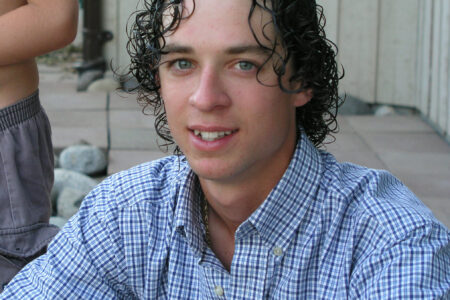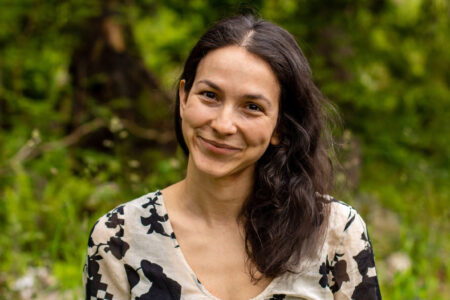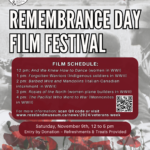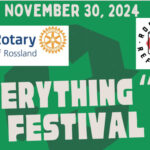COUNCIL MISCELLANY: Here come ‘attended’ dogs and mountain markets...
Rossland Council’s Feb. 25 meeting put a new animal bylaw in motion, heard an appeal from the museum, moved the farmers’ market back downtown, reset the Cook Ave. development, dove into a new recreation bursary program, and agreed to the possibility of a taxation increase to fund a reserve for the hospital in Trail.
Public attended the meeting for a public hearing before the final debate over a zoning change for a small portion of Redstone Resort, and also to hear council’s decision regarding a three year, $2400 gas bill foisted on the Rossland Radio Co-op. Both these issues are addressed in separate articles.
Revised animal bylaw coming to town
Following committee-of-the-whole (COW) discussions on Feb. 18, council instructed staff at the Feb. 25 regular meeting to draft a revised animal bylaw that will “allow attended dogs to be walked downtown on a leash.”
A separate resolution called for enforcement to be increased once the new bylaw is in place. Council further resolved that the “fee structure” of fines be changed so that charges will apply cumulatively to a dog for each offense, without resetting on an annual basis.
A motion at the COW by Coun. Moore and seconded by Coun. Blomme to “liaise with the Chamber of Commerce to determine which business owners would allow dogs tied up beside their businesses” was defeated. Instead, council supported a resolution to prohibit tied up dogs in the downtown core.
Coun. Jill Spearn said “It will be up to community to make it work.” Coun. Kathy Wallace reassured the public that the debate is not over: “The bylaw will be coming [to council] and we can all get into it again.”
Decisions on any new smoking regulations—which have been debated concurrently with the animal bylaw in response to the downtown renovation—will be deferred until the Interior Health Authority presents to council on April 8.
Museum requests funding for a full time curator
Rossland Historical Museum Society President Libby Martin and Treasurer Vince Profili presented to council on Feb. 25 to request $28,000 (or more) to fund more employees as the museum plans to expand its operation across the year.
“We really do need to have an employee year round in the museum,” Martin said. “Currently museum directors [volunteers] are doing tasks an employee would typically do. There’s an impression that when the museum is closed there’s nothing to do.” On the contrary, she said, there are grant applications to submit, advertising to organize, emails to write, bills to pay, and a general need to catch up with organization of archival material and research requests. She worried that the directors will experience burnout.
Furthermore, long time manager Joyce Austin plans to retire in 2014 after three decades of service. “Much of what she’s done as manager has never been recorded,” Martin said, “it’s up here [in her head].” Consequently, there is now additional work to “get procedures down” and “get a succession plan in place.”
The museum also has plans to hire a full time employee to run the front desk, allowing the new manager to focus on work as a curator.
As part of a strategy to encourage more visits, the museum now plans to be open for three days a week all year, with more opening hours during the peak season of July and August. The days and hours have not yet been determined.
“All that sort of thing is going to cost more money,” Martin said, acknowledging the goal to become more financially sustainable, but recognizing the difficulty of securing grants for operations—they typically favour capital expenditures—and she said, “it’s hard right now while we don’t have a drawing card.”
Profili said that the submitted museum budget asked for a $28,000 increase, but “I’d like to double it,” he said, noting that the curator credentials they’re looking at would demand a higher salary.
“It’s wise to be open during ski season,” Profili said, also noting talks with Teck to make the museum’s presence more noticeable, with visible ore dumps for example. The museum is also digitizing its collection as another potential source of revenue.
Martin hopes that as the proposed Gateway Project comes to fruition with a visitor’s centre adjoining the museum, the raised costs “may just be a carryover” as visits increase and the front desk position can be shared. The final draft for the request-for-proposals (RFP) will be debated at the next Gateway meeting on Feb. 27.
Rossland Mountain Market returns to downtown
The Thursday afternoon farmers’ market put on by Rossland REAL Food and now entering its fifth season of operation will be back to Queen and Columbia this summer, by a unanimous vote of council.
Last year the market ran at 1st and Queen to avoid the downtown renovations, but vendor sales were dramatically lower. REAL Food hopes returning to the old location in the newly renovated downtown core will bring customers back.
Coun. Jill Spearn said the market is “vibrant, well-run, and interesting” adding “flavour of our community.”
Coun. Tim Thatcher said, “It’s a big asset to downtown Rossland in the summer, I fully support moving it back down to where it was.”
Cook Ave. development splits in two
Council recently passed a zoning amendment to allow local developer Cezary Ksiazek to build a group of six fourplexes on the site of the old Cook Ave. school, but the final form of the bylaw was not favourable to Ksiazek’s plans, so he’s gone back to the drawing board with the city planners.
For now, Ksiazek has decided to split off a small 1606 Thompson Ave. lot from his application that was originally included with the two main lots between Monita and Cliff streets.
Council agreed to rescind the old motion and advance a new zoning amendment for 1606 Thompson to a public hearing that will be held on March 11. The old P-1 zoning for this lot—it used to be part of the school’s baseball diamond—would become R-1 Detached Infill Residential.
Note: We have written “Cook” without an ‘e’ to honour the historically correct spelling that was changed, perhaps accidentally, in 1952.
Recreation bursary for low income families
Robin Hethey of the city’s recreation department has announced a Kid’s Access Bursary Fund to allow people to make donations, most notably the recent donation of $7000 by the Jr. and Sr. Warriors teams. The fund is intended to help children from low income families access recreation programs offered in Rossland.
Council supported the idea, but suggested changes to the structure of the fund. To ensure the fund is used for low income families, Hethey had suggested that the applicants identify a “sponsor, champion, or advocate” who “cannot be a relative, close friend, or associated with the program being applied for.”
Coun. Kathy Moore complained that this was “mushy” and suggested instead that applicants instead submit a tax return with actual income shown. This would then be reviewed first by the fund coordinator and checked by a second person, but would otherwise be confidential.
Council supported this change and the bursary, which Coun. Tim Thatcher called an “excellent initiative.” Council also thanked the Warriors for their donation. The bursary will be announced in its final form later this spring.
Kootenay Boundary Regional Hospital digs deeper for reserve funds
Coun. Kathy Wallace, Rossland’s representative on the KBRH board, has pressed council for a decision on how she should vote in the upcoming debate on how much the hospital should be putting away into reserves for future projects.
What exactly those projects are, however, has not been well-explained because planning is the jurisdiction of the Interior Health Authority (IHA), Wallace explained, while the board is only responsible for collecting money and operations.
Coun. Kathy Moore said, “We can’t just throw money in a bucket; they [the IHA] have to plan specifically.” When Wallace noted that it’s not the hospital board’s mandate, Moore replied, “But they speak to those who do,” to which Wallace said that the board has been trying to do so for a long time.
Coun. Jill Spearn asked about the relationship between the hospital board and the IHA, to which Wallace responded, “It’s improving.”
Nevertheless, it is clear, Wallace said, that expensive upgrades are looming on the horizon and a larger reserve fund—currently at just over $3 million—will be required to “prepare for the future.”
“Delaying that to taxpayers 10 to 15 years from now, I don’t think is good planning,” she said.
She suggested that her vote should support the option for a one million dollar contribution to reserves. For a residence assessed at $250,000, that will increase taxes by $14.90.
Other options included no contribution—resulting in a net tax savings for the $250,000 household of 90 cents—to a $3 million reserve increase, costing the hypothetical house a $46.45 tax increase.
Council, with the exception of Spearn, agreed to this suggestion. Spearn had pointed out during the debate that Rossland faces many financial strains in the years to come, from paying for the downtown renovations to the K-12 school issue.

























